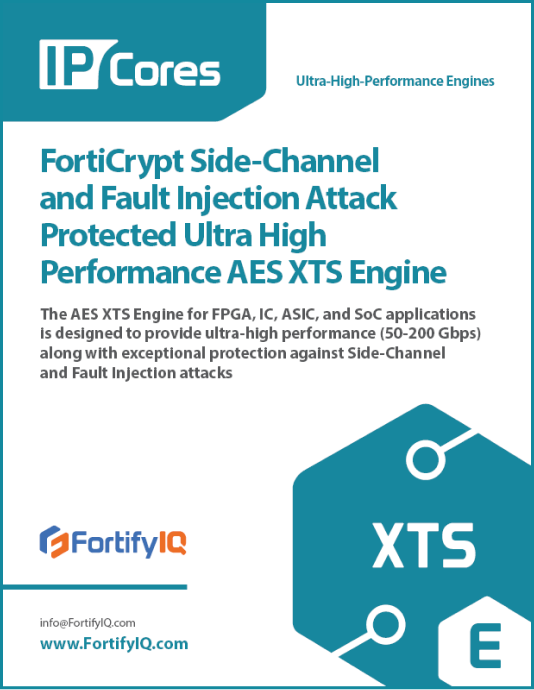FORTICRYPT SIDE-CHANNEL AND FAULT INJECTION ATTACK PROTECTED ULTRA HIGH PERFORMANCE AES XTS ENGINE
The AES XTS Engine for FPGA, IC, ASIC, and SoC applications is designed to provide ultra-high performance (50-200 Gbps) along with exceptional protection against Side-Channel and Fault Injection attacks

The FortifyIQ AES XTS Engine is designed to provide ultra-high performance (up to 200 Gbps) along with the strongest protection against side-channel and fault injection attacks in the market. The FortifyIQ AES Core is the main building block of the engine.
The Core is resistant to DPA (Differential Power Analysis), SPA (Simple Power Analysis), EMEA (Electromagnetic Emissions Attacks), and FIA (Fault Injection Attacks).
The Core passes both the TVLA (Test Vector Leakage Assessment) and the MIA (Mutual Information Analysis) – Leakage Assessment methodologies.
Its resistance against attacks and compliance to the Leakage Assessment methodologies above is proven by theoretical investigation, software simulations using the FortifyIQ analysis toolset (SideChannel Studio for SCA and FaultInjection Studio for FIA), and FPGA implementations.